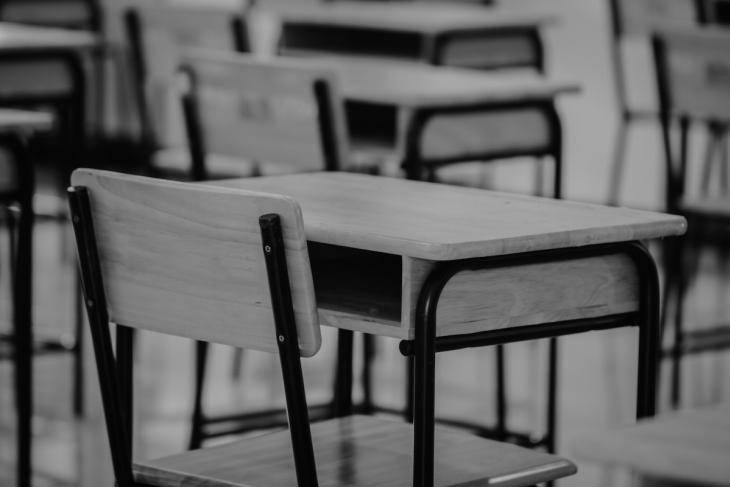Recently, Jo Boaler—a Stanford professor and one of the country’s foremost scholars of mathematics—took to the Hechinger Report to write about pandemic learning loss. Given the severity of this problem, we might assume that Boaler would use the space to advocate for strategies to reverse it. That assumption would be wrong.
“Can we please stop talking about so-called learning loss?” Boaler pleads. In her view, learning loss isn't the problem. The problem is that we care about it in the first place. Boaler asks why we are concerned about the drop in test scores when there was no such downturn “in terms of student problem-solving or thought processes”?
In a particularly sophistic passage, Boaler asks, “Did students lose learning during the pandemic?” Or did those students replace that learning “with knowledge and insights about the world, health challenges, global upheaval, exponential growth, technology, and ways to help their families and navigate complex social situations?”
“I think it’s quite clear that they did all of these things,” she neatly concludes.
Boaler is simply and egregiously wrong. Learning loss is a profound generational problem, and we should continue to talk about it. More important, we should bend every effort to do something about it. The recent round of NAEP scores revealed that two decades of growth in reading and math test scores had been wiped out in just three years. This disruption to learning will have long-term consequences for students and society at large. One Stanford economist estimates that it’ll reduce the lifetime earnings of students by $70,000 and cause a $28 trillion hit to the American economy.
For those unfamiliar with Boaler’s work, her blithe disregard of test-measured learning loss may seem surprising. Math deals with numbers, facts, and figures—things that are objectively true or not. Likewise, students either know math content or they do not (as evidenced by the latest NAEP scores). How can Boaler claim there’s no learning loss when presented with data that clearly show otherwise? How is helping one’s family “navigate complex social situations” a plausible substitute for knowing fractions?
But for those familiar with Boaler’s work, this opinion comes as no surprise. For more than a decade, Boaler—the third most influential education scholar in America, according to AEI’s Frederick Hess—has promoted a view of math that privileges classroom culture and student enjoyment over actual content knowledge.
Her main contribution to the field of math education is her focus on mindsets. The theory, which is heavily influenced by the “growth mindset” work of Carol Dweck, holds that intelligence is not a fixed quality, but instead a process of learning and building neural connections. Teachers should therefore help students move past a “fixed mindset” and toward one that embraces experimentation and growth.
This leads to one of Boaler’s central themes: that there are no students who are inherently “good at math.” Instead, she holds that these are students who use mathematical thinking—making propositions, experimenting with methods, reflecting on outcomes—to understand and solve problems. And she contends that this mathematical thinking can be taught to anyone, meaning that there are no students who are inherently “bad at math.” These are just students stuck in a fixed mindset.
On its face, there’s nothing wrong with trying to unfix student mindsets. If a teacher affirms every students’ ability to do math, no student has an excuse to opt out of challenging work. The problem is that it’s not enough, and Boaler has a history of dismissing the importance of content knowledge and skills for students. “We don’t need students to calculate quickly in math,” Boaler declared in a 2015 opinion for the Hechinger Report; “we need students who can ask good questions.” In the same piece, she applauds tech company Wolfram-Alpha for urging schools to “stop emphasizing calculating and focus instead on problem solving.” In her 2016 Mathematical Mindsets, Boaler took schools to task for “giving students the impression that math facts are the essence of mathematics” or that the recall of math facts is essential for being a good mathematician.
Here she sets up an obvious straw-man argument. Very few teachers or schools reduce math to the pure memorization of facts. But those facts are essential to solving complex math problems. If a student cannot quickly solve simple multiplication problems like 5 x 4, that student will struggle mightily when those calculations are embedded in word problems. Quickly—or automatically—realizing that 5 x 4 = 20 allows that student to instead focus on the more complex material in the word problem.
Boaler’s troubling dismissal of test-based learning loss is consistent with her general views on math. The loss of content knowledge isn’t important because, to Boaler, it was never important to begin with. Mindsets are important. It’s telling that she cites the survey results of the National Speak Up Project, which show that roughly the same percentage of students pre- and mid-pandemic said that doing well in school was important to them. For Boaler, this motivation to learn is “arguably more important than differences in scores on standardized tests.”
Motivation to learn is indeed important. But in no way does it take the place of actual learning. Boaler has shown a willingness to engage with those who disagree with her in the past, so there’s hope her views could evolve. But for now, we should disregard Professor Boaler’s pleas. We should continue to talk about learning loss, its causes, and its possible remedies, and we should continue to do so until students are back on grade level.


